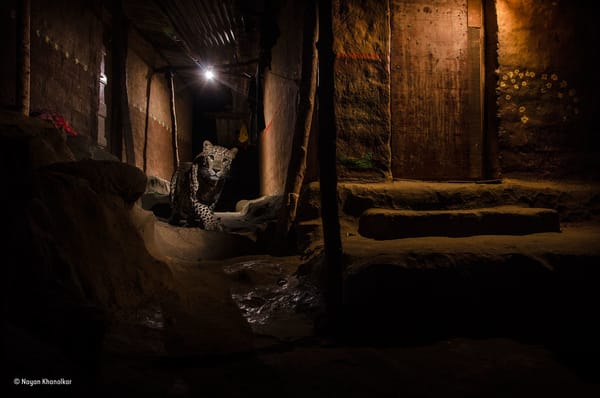Overpopulation | Is it a myth? Is it inevitable? Should we be worried?
Jawaad Farooq muses on what the possible solutions to an overcrowded world may be, what the future may have in store, and why we should care

On watching Dan Brown’s Inferno this weekend, the question of how we would survive overpopulation struck a chord with me. It may have been a slightly dull film at times but the theme nevertheless was a relevant and intriguing one. Essentially, a billionaire concerned with overpopulation creates a virus to cull the number of humans in the world. Robert Langdon then proceeds to chase clues through art, ends up finding where the virus is due to be released and spoiler alert ultimately saves the day.
Despite being a work of fiction, the questions asked throughout the film seem to be very real. At some point the rising population will overtake the resources we have. How then will we sustain ourselves?
Many have thought of solutions, but most seem to be about culling the population, not sustaining it. An increasing death rate due to war sparked by competition for resources, or a decrease in birth rate implemented by governments, like China’s one-child-policy seem to be the main options. But will our governments take action proportionate to the crisis we are possibly facing, or will we mess things up and reach a shit-hit-the-fan scenario like humans seem prone to doing? The population was 0.8bn in 1800; by 1900 it had become 1.6bn and by 2000 it was 6.115 bn. We now stand at more than seven bn. The numbers at first glance seem to point to certain disaster for the future.
Given the toxic mix of increased population, further damage from climate change and increased technologically advanced and destructively powerful weaponry, how to manage and handle the problems of the future are something that needs to be taken seriously. So what are the potential solutions?
The first and most obvious one is the advancement of science and technology. Science has been our ‘saviour’ which has generated and sustained the industrial revolution and allowed the population to explode so dramatically. Most of the work being done – except those few eccentric genocidal billionaires apparently – is in this area. From mitigating climate change and creating clean and sustainable energy resources, to improving healthcare and growing more food, all avenues are being explored. This seems to be the most obvious way forward without a morally dubious solution to the problem. In our all-pervading mentality of the consumer comes first, and rising living standards of the world, most of us are not willing to or have even considered radical lifestyle changes.

Yet these changes could be a real solution to the problem of overpopulation. There would have to be radical changes to what is currently accepted as a norm of lifestyle; a solution where the consumption of resources would decrease radically. If we are to strip life bare and think about it, what is it that we really need to survive and be happy? Food, healthcare, a roof over our heads, companionship, some sort of work and some sort of entertainment. Instead of being a consumer orientated society we would have to become oriented around not having and acquiring new things, but being satisfied with what is there and finding pleasure in the repetition. That is a massive and somewhat untenable cultural shift that would have to occur, but it is not impossible. Yet statistics and human nature seem to be against us. Demands shift as living conditions get better. For example better lifestyles correlate with bigger demands for meat and dairy, so grain that could be used to feed many more people goes into feeding animals to make more of what we want. But we need our cheeseburgers apparently.
Yet cultural shift is not impossible. These changes have been seen to come into play via two ways –wars and revolutions. Both are tragic, bloody and traumatic. The latter is a possibility but I think it unlikely that people would rise up in some sort of green revolution against governments, solely due to the threat of overpopulation or indeed climate change.
What seems more likely is that society becomes reset through the almost unavoidable consequence of war occurring due to a fight for resources and supremacy in a world which knows things are going wrong but refuses to face the facts. It as if the world will head to a high energy state; the bubble of our ego’s will inflate and continue to do so till it bursts, expends its energy in war, and finally returns to a low energy state. Then people will – having learnt their lessons – realise where they went wrong and rebuild society on a more sustainable, simpler model. The war will solve the population problem as well, by wiping out a goo chunk of it. If the remnants of nuclear war don’t create an uninhabitable environment, maybe the few lucky survivors will be able to rebuild society. But the tragedy beyond all of this, is that even if some survive, the history shows humans do not seem to learn the lessons of the past, especially not those of war. Two world wars in the space of twenty years, and much more in between and after. It seems war may just be part of our nature. Overpopulation may just be a frustration that lets us express that nature once again.

But maybe science and technology will lead us to the solution. And what will that solution be? Maybe we worry about earth as the only planet we have, but maybe that won’t be the case in the future. What if we colonise other planets and our population can spill over and we develop the technology to planet hop and live elsewhere? Efforts are currently underway for a manned mission to Mars, and research is ongoing with regards to how we would populate the red planet. If we can move out of our planet and mine resources from other planets, then the universe is our oyster. Then not only is overpopulation solved, but we could potentially expand beyond any limits. But this is a race against time. Elon Musk with his SpaceX program and desire to die on Mars just “not on landing” may take us one more step closer to colonising it. He hopes to have astronauts on Mars by 2025. NASA has more humble predictions of sending astronauts into orbit by 2030. Having an actual civilisation on Mars therefore seems to be decades off.
There are those who would preach for us to stop having children or to just have one child. In their self-induced panic, they may even set an example for the world. Fair play to them. But beyond the sudden pang of morality you might feel from hearing them preach and beyond the panic that ensues from watching a film such as Inferno as you tentatively put on your intellectual’s glasses and begin to consider if a population cull is what is really needed, we should actually sit down and consult the figures.

The idea that population growth is exponential is one that is thrown around quite a lot. And quite callously might I add. From the comparisons of humanity as a virus and the images in your mind of cells dividing uncontrollably, exponential population growth – the increasing growth rate of something proportional to its total quantity – is not supported by the statistics. Starting at 1800 in the space of a hundred years we doubled, then in the next hundred years we multiplied by around six and in the following 15 have increased from around six billion to seven billion.
Hold on you say. Things look like they’re increasing crazily. However, contrary to the panic the internet will leave you in, Hans Rosling, a Swedish medical doctor and statistician, believes overpopulation is a myth and will not surpass eleven billion. He claims that since the 60’s, population has been growing steadily, not exponentially. He explains that the population will grow some more, but as access to medical care, contraceptives, empowerment of women, better education for women and men, later births, family planning and rising living standards all kick in, the birth rate will sustain itself. The death rate and the birth rate will be roughly equal. As living standards rise, people will have less children and focus on giving them a better standard of living. The population is predicted to reach 9.5 bn by 2050 and 10.9 bn by 2100. So the value of 32bn within this century quoted in Inferno seems to be nonsense. The idea that population will stabilise therefore makes sense. Add to that the projected betterment of technology, the fact that – as Ester Boserup, eminent Danish economist put it – the threat of starvation and increased demand motivates people to modify and research into agriculture, produce new technology and modify methods to increase food production and better understanding of the world in general, the future may not look so bleak. Overpopulation may not even be something to fear. What we should probably fear is us messing things up by destroying ourselves in a war that we can’t come back from. And destroying the animal and plant kingdom because of our activities and global warming.
Overpopulation may not be the problem the film suggests it is, but if one thing is for sure, while we may be producing enough food for everyone, we certainly don’t know how to distribute it. Instead of films like Inferno scaremongering about the threat of more humans, maybe we should focus on how to get the food we have to those who need it and educate people to feast responsibly and sustainably for the betterment of all. It’s a crazy world, but we have the tools to manage it.







